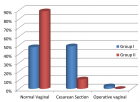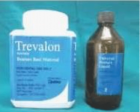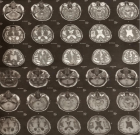Abstract
Review Article
The Primary Care Treatment System for Severe Depression: Perspectives of Patients, Doctors, Treatment Guidelines and Treatment System Failures
Tony Frais MA*
Published: 13 June, 2024 | Volume 8 - Issue 1 | Pages: 026-039
There are a number of key issues that matter to patients and General Physicians (GPs) in the primary care treatment system for severe depression. Patient and doctor narratives can contribute by highlighting these key issues. Various systems are employed in treating severe depression. However, there needs to be an investigation using systems failure methodology and how this methodology is applied which can help identify how and why the NHS treatment system for severe depression can fail patients in terms of provision of effective care.
Read Full Article HTML DOI: 10.29328/journal.ida.1001042 Cite this Article Read Full Article PDF
Keywords:
General physicians; Anxiety; Depressive episodes; Psychotherapy
References
- Murray CJ, Lopez AD. Alternative projections of mortality and disability by cause 1990-2020: Global Burden of Disease Study. Lancet. 1997 May 24;349(9064):1498-504. doi: 10.1016/S0140-6736(96)07492-2. PMID: 9167458.
- Pines A, Maslach C. Characteristics of staff burnout in mental health settings. Hosp Community Psychiatry. 1978 Apr;29(4):233-7. doi: 10.1176/ps.29.4.233. PMID: 631745.
- Parker GB, Malhi GS, Crawford JG, Thase ME. Identifying "paradigm failures" contributing to treatment-resistant depression. J Affect Disord. 2005 Aug;87(2-3):185-91. doi: 10.1016/j.jad.2005.02.015. PMID: 15979725.
- Beck AT, Rush J, Shaw BF, Emery G. Cognitive Therapy of depression. New York, NY, USA: Guilford Press; 1987
- Airaksinen E, Wahlin A, Larsson M, Forsell Y. Cognitive and social functioning in recovery from depression: results from a population-based three-year follow-up. J Affect Disord. 2006 Nov;96(1-2):107-10. doi: 10.1016/j.jad.2006.05.004. Epub 2006 Jun 19. PMID: 16782205.
- Alloy L, Kelly K, Mineka S, Clements C. Comorbidity in anxiety and depressive disorders: a helplessness/hopelessness In: Comorbidity of Mood and Anxiety Disorders, ed. JD Maser, CR Cloninger. American Psychiatric Press Washington, DC: 1990:499-543.
- Kessler RC, DuPont RL, Berglund P, Wittchen HU. Impairment in pure and comorbid generalized anxiety disorder and major depression at 12 months in two national surveys. Am J Psychiatry. 1999 Dec;156(12):1915-23. doi: 10.1176/ajp.156.12.1915. PMID: 10588405.
- Beck AT. Depression: Clinical, Experimental and Theoretical Aspects. New York: Harper and Row. 1967.
- ICD-10 Classification of Mental and Behavioural Disorders World Health Organization, Geneva 1992.
- American Psychiatric Association. Diagnostic and statistical manual of mental disorders, Fourth Edition, Text Revision: DSM-IV-TR. Washington, DC: American Psychiatric Publishing, Inc.; 2000
- Andrews G, Slade T, Peters L. Classification in psychiatry: ICD-10 versus DSM-IV. Br J Psychiatry. 1999 Jan;174:3-5. doi: 10.1192/bjp.174.1.3. PMID: 10211143.
- Maes, M Meltzer, H Y. The Serotonin Hypothesis of Major Depression. In: Davis KL Charney D Coyle J T Nemerof, C B, editors. Neuropsychopharmacology: An Official.
- Rose D, Fleischmann P, Wykes T, Leese M, Bindman J. Patients' perspectives on electroconvulsive therapy: systematic review. BMJ. 2003 Jun 21;326(7403):1363. doi: 10.1136/bmj.326.7403.1363. PMID: 12816822; PMCID: PMC162130.
- Roth A, Fongay P. What Works for Whom? A Critical Review of Psychotherapy Research (2nd edn). New York: Guilford Press. 2004.
- Flynn D. Narratives of melancholy: a humanities approach to depression. Med Humanit. 2010 Jun;36(1):36-9. doi: 10.1136/jmh.2009.002022. Epub 2010 May 12. PMID: 21393273.
- Williams JM, Barnhofer T, Crane C, Herman D, Raes F, Watkins E, Dalgleish T. Autobiographical memory specificity and emotional disorder. Psychol Bull. 2007 Jan;133(1):122-48. doi: 10.1037/0033-2909.133.1.122. PMID: 17201573; PMCID: PMC2834574.
- Styron W. Darkness Visible: A Memoir of Madness. New York: Random,1990.
- Styron R. Strands. In Unholy Ghost. In: Casey editor. Perennial; 2002.
- Solomon A. The Noonday Demon. Vintage; New edition 2002.
- Zimmerman L. Against Depression: Final Knowledge in Styron, Mairs, and Solomon. Biography. 2007; 30: 465-480.
- Lewis SL. A search for meaning: Making sense of depression. Journal of Mental Health. 1995; 4: 369-382.
- Wilson A. Consultation length in general practice: a review. Br J Gen Pract. 1991 Mar;41(344):119-22. PMID: 2031756; PMCID: PMC1371626.
- Carr-Hill R, Jenkins-Clarke S, Dixon P, Pringle M. Do minutes count? Consultation lengths in general practice. J Health Serv Res Policy. 1998 Oct;3(4):207-13. doi: 10.1177/135581969800300405. PMID: 10187199.
- Pollock K, Grime J. Patients' perceptions of entitlement to time in general practice consultations for depression: qualitative study. BMJ. 2002 Sep 28;325(7366):687. PMID: 12351362; PMCID: PMC126657.
- Tylee A. Major depressive disorder (MDD) from the patient's perspective: overcoming barriers to appropriate care. Int J Psychiatry Clin Pract. 2001;5(1):37-42. doi: 10.1080/13651500152048432. PMID: 24936996.
- Depression Alliance (2011) viewed Feb 4th 2011 http://www.depressionalliance.org/PDF/daring-to-choose-09.pdf
- Campbell A. ‘Dependency revisited: the limits of autonomy in medical ethics’, in M. Brazier and M. Lobjoit (eds) Protecting the vulnerable, London: Routledge. 1991.
- Good BJ, Good MJD. "Fiction" and "historicity" in doctors’ stories: social and narrative dimensions of learning medicine. In: Mattingly C, Garro LC, editors. Narrative and the cultural construction of illness and healing. Berkeley, Calif: University of California Press; 2000; 50-1.
- Mitchell AJ, Rao S, Vaze A. Can general practitioners identify people with distress and mild depression? A meta-analysis of clinical accuracy. J Affect Disord. 2011 Apr;130(1-2):26-36. doi: 10.1016/j.jad.2010.07.028. Epub 2010 Aug 13. PMID: 20708274.
- Wagner HR, Burns BJ, Broadhead WE, Yarnall KS, Sigmon A, Gaynes BN. Minor depression in family practice: functional morbidity, co-morbidity, service utilization and outcomes. Psychol Med. 2000 Nov;30(6):1377-90. doi: 10.1017/s0033291799002998. PMID: 11097078.
- Mitchell AJ, Vaze A, Rao S. Clinical diagnosis of depression in primary care: a meta-analysis. Lancet. 2009 Aug 22;374(9690):609-19. doi: 10.1016/S0140-6736(09)60879-5. Epub 2009 Jul 27. PMID: 19640579.
- Gilbody S, Richards D, Brealey S, Hewitt C. Screening for depression in medical settings with the Patient Health Questionnaire (PHQ): a diagnostic meta-analysis. J Gen Intern Med. 2007 Nov;22(11):1596-602. doi: 10.1007/s11606-007-0333-y. Epub 2007 Sep 14. PMID: 17874169; PMCID: PMC2219806.
- Ronalds C, Creed F, Stone K, Webb S, Tomenson B. Outcome of anxiety and depressive disorders in primary care. Br J Psychiatry. 1997 Nov;171:427-33. doi: 10.1192/bjp.171.5.427. PMID: 9463600.
- Pollock, K. Primary care Patients' perceptions of entitlement to time in general practice consultations for depression: qualitative study. BMJ 2002; 325:687
- Rogers A, May C, Oliver D. Experiencing depression, experiencing the depressed: the separate worlds of patients and doctors. J Ment Health. 2001; 10(3):317-334.
- Eisenberg L. Perspectives: Treating depression and anxiety in the primary care setting. Health Aff. 1992;11(3):149-156.
- Thompson C, Kinmonth AL, Stevens L, Peveler RC, Stevens A, Ostler KJ, Pickering RM, Baker NG, Henson A, Preece J, Cooper D, Campbell MJ. Effects of a clinical-practice guideline and practice-based education on detection and outcome of depression in primary care: Hampshire Depression Project randomised controlled trial. Lancet. 2000 Jan 15;355(9199):185-91. doi: 10.1016/s0140-6736(99)03171-2. PMID: 10675118.
- Gask L, Dixon C, May C, Dowrick C. Qualitative study of an educational intervention for GPs in the assessment and management of depression. Br J Gen Pract. 2005 Nov;55(520):854-9. PMID: 16282001; PMCID: PMC1570781.
- National Institute for Clinical Excellence (2009) Depression The treatment and management of depression in adults. Clinical guideline CG90
- Hegarty K, Gunn J, Blashki G, Griffiths F, Dowell T, Kendrick T. How could depression guidelines be made more relevant and applicable to primary care? A quantitative and qualitative review of national guidelines. Br J Gen Pract. 2009 May;59(562):e149-56. doi: 10.3399/bjgp09X420581. PMID: 19401008; PMCID: PMC2673182.
- Leaman A. NICE: mostly a bad idea. Emerg Med J. 2009 Sep;26(9):627-8. doi: 10.1136/emj.2009.072132. PMID: 19700572.
- Daly EJ, Trivedi MH. A review of quetiapine in combination with antidepressant therapy in patients with depression. Neuropsychiatr Dis Treat. 2007 Dec;3(6):855-67. doi: 10.2147/ndt.s1862. PMID: 19300621; PMCID: PMC2656328.
- Feldman MD, Christensen JF. Behavioral Medicine: A Guide for Clinical Practice: A Practical Guide. 3rd ed. McGraw-Hill Medical; 2008.
- McAllister-Williams RH. Do antidepressants work? A commentary on "Initial severity and antidepressant benefits: a meta-analysis of data submitted to the Food and Drug Administration" by Kirsch et al. Evid Based Ment Health. 2008; 11:66-68.
- McQueen D. Response to the NICE draft guideline on depression. 2009.
- Moncrieff J, Kirsch I. Efficacy of antidepressants in adults. BMJ. 2005 Jul 16;331(7509):155-7. doi: 10.1136/bmj.331.7509.155. PMID: 16020858; PMCID: PMC558707.
- Baker D. Rapid response to Moncrieff & Kirsch 2005 16th July 2005 retrieved 4.2.11 http://www.bmj.com/content/331/7509/155.extract/reply#bmj_el_112381
- Elkin I, Shea MT, Watkins JT, Imber SD, Sotsky SM, Collins JF, Glass DR, Pilkonis PA, Leber WR, Docherty JP, et al. National Institute of Mental Health Treatment of Depression Collaborative Research Program. General effectiveness of treatments. Arch Gen Psychiatry. 1989 Nov;46(11):971-82; discussion 983. doi: 10.1001/archpsyc.1989.01810110013002. PMID: 2684085.
- Teasdale JD, Segal ZV, Williams JM, Ridgeway VA, Soulsby JM, Lau MA. Prevention of relapse/recurrence in major depression by mindfulness-based cognitive therapy. J Consult Clin Psychol. 2000 Aug;68(4):615-23. doi: 10.1037//0022-006x.68.4.615. PMID: 10965637.
- Leaman, A NICE: mostly a bad idea. Emergency Medicine Journal 2009;26:627-628
- Louch P, Goodman C, Greenhalgh T. Involving service users in the evaluation and redesign of primary care services for depression: A qualitative study. Prim Care Community Psychiatry. 2006;10(3):109-117.
- Royal College of Psychiatrists Depression. Working in partnership with psychiatrists and carers. 2005
- Brearley SA. High level management and disaster. In: Keller, AZ Wilson, H C editors. Emergency Planning in the 1990s, British Library/Technical Communications, Letchworth. 1991.
- Williams SJ. Depressed patients need more than drugs and psychiatrists. 2003; 326:338.
- Chapman J. System Failure. Demos 2002. London. 27.
- Belgamwar, M Bates, C Goes, C Taylor, N. Appropriateness of GP referrals of patients with anxiety and depression. Progress in Neurology and Psychiatry. http://www.thecochranelibrary.com/userfiles/esprog/file/GPreferralsproof.pdf
- Chew-Graham C. NICE has modified its stepped-care model for treating depression Guidelines in Practice. 2009; 12.
- Katon W, Von Korff M, Lin E, Walker E, Simon GE, Bush T, Robinson P, Russo J. Collaborative management to achieve treatment guidelines. Impact on depression in primary care. JAMA. 1995 Apr 5;273(13):1026-31. PMID: 7897786.
- Gask, L Khanna, T. Ways of working at the interface between primary and specialist mental healthcare. The British Journal of Psychiatry (2011) 198: 3-5
- Fonagy, P Paris, J. The effectiveness of psychological treatments in psychiatry. In: Tyrer P, Silk KB, editors. Cambridge Textbook of Effective Treatments in Psychiatry. Cambridge University Press; 2008;.98 – 115
- Fairhead, C. The practice nurse role in managing depression in primary care. Nursing Times 2003.
Figures:
Similar Articles
-
Burnout and Related Factors in Caregivers of outpatients with SchizophreniaHatice Demirbas*,Erguvan Tugba Ozel Kizil. Burnout and Related Factors in Caregivers of outpatients with Schizophrenia. . 2017 doi: 10.29328/journal.hda.1001001; 1: 001-011
-
Anxiety and depression as an effect of birth order or being an only child: Results of an internet survey in Poland and GermanyJochen Hardt*,Lisa Weyer,Malgorzata Dragan,Wilfried Laubach. Anxiety and depression as an effect of birth order or being an only child: Results of an internet survey in Poland and Germany. . 2017 doi: 10.29328/journal.hda.1001003; 1: 015-022
-
Vestibular-limbic relationships: Brain mappingPaolo Gamba*. Vestibular-limbic relationships: Brain mapping. . 2018 doi: 10.29328/journal.ida.1001006; 2: 007-013
-
Responding to Disasters: More than economic and infrastructure interventionsDavid Crompton OAM*,Ross Young,Jane Shakespeare-Finch,Beverley Raphael AM. Responding to Disasters: More than economic and infrastructure interventions. . 2018 doi: 10.29328/journal.ida.1001007; 2: 014-028
-
Anti-anxiety effects in mice following acute administration of Ficus Thonningii (wild fig)Aduema W*,Akunneh-Wariso C,Ejiofo DC,Amah AK. Anti-anxiety effects in mice following acute administration of Ficus Thonningii (wild fig). . 2018 doi: 10.29328/journal.ida.1001009; 2: 040-047
-
Translation, adaptation and validation of Depression, Anxiety and Stress Scale in UrduWaqar Husain*,Amir Gulzar. Translation, adaptation and validation of Depression, Anxiety and Stress Scale in Urdu. . 2020 doi: 10.29328/journal.ida.1001011; 4: 001-004
-
Depression as a civilization-deformed adaptation and defence mechanismBohdan Wasilewski*,Olha Yourtsenyuk,Eugene Egan. Depression as a civilization-deformed adaptation and defence mechanism. . 2020 doi: 10.29328/journal.ida.1001013; 4: 008-011
-
The different levels of depression and anxiety among Pakistani professionalsSehrish Hassan*,Waqar Husain. The different levels of depression and anxiety among Pakistani professionals. . 2020 doi: 10.29328/journal.ida.1001014; 4: 012-018
-
Impact of Christian meditation and biofeedback on the mental health of graduate students in seminary: A pilot studyPaul Ratanasiripong*,Sun Tsai . Impact of Christian meditation and biofeedback on the mental health of graduate students in seminary: A pilot study. . 2020 doi: 10.29328/journal.ida.1001015; 4: 019-024
-
Therapeutic application of herbal essential oil and its bioactive compounds as complementary and alternative medicine in cardiovascular-associated diseasesAhmad Firdaus B Lajis*,Noor Hanis Ismail. Therapeutic application of herbal essential oil and its bioactive compounds as complementary and alternative medicine in cardiovascular-associated diseases. . 2020 doi: 10.29328/journal.ida.1001016; 4: 025-036
Recently Viewed
-
Advancing Forensic Approaches to Human Trafficking: The Role of Dental IdentificationAiswarya GR*. Advancing Forensic Approaches to Human Trafficking: The Role of Dental Identification. J Forensic Sci Res. 2025: doi: 10.29328/journal.jfsr.1001076; 9: 025-028
-
Scientific Analysis of Eucharistic Miracles: Importance of a Standardization in EvaluationKelly Kearse*,Frank Ligaj. Scientific Analysis of Eucharistic Miracles: Importance of a Standardization in Evaluation. J Forensic Sci Res. 2024: doi: 10.29328/journal.jfsr.1001068; 8: 078-088
-
Sinonasal Myxoma Extending into the Orbit in a 4-Year Old: A Case PresentationJulian A Purrinos*, Ramzi Younis. Sinonasal Myxoma Extending into the Orbit in a 4-Year Old: A Case Presentation. Arch Case Rep. 2024: doi: 10.29328/journal.acr.1001099; 8: 075-077
-
Toxicity and Phytochemical Analysis of Five Medicinal PlantsJohnson-Ajinwo Okiemute Rosa*, Nyodee, Dummene Godwin. Toxicity and Phytochemical Analysis of Five Medicinal Plants. Arch Pharm Pharma Sci. 2024: doi: 10.29328/journal.apps.1001054; 8: 029-040
-
Antibacterial Screening of Lippia origanoides Essential Oil on Gram-negative BacteriaRodrigo Marcelino Zacarias de Andrade, Bernardina de Paixão Santos, Roberson Matteus Fernandes Silva, Mateus Gonçalves Silva*, Igor de Sousa Oliveira, Sávio Benvindo Ferreira, Rafaelle Cavalcante Lira. Antibacterial Screening of Lippia origanoides Essential Oil on Gram-negative Bacteria. Arch Pharm Pharma Sci. 2024: doi: 10.29328/journal.apps.1001053; 8: 024-028.
Most Viewed
-
Evaluation of Biostimulants Based on Recovered Protein Hydrolysates from Animal By-products as Plant Growth EnhancersH Pérez-Aguilar*, M Lacruz-Asaro, F Arán-Ais. Evaluation of Biostimulants Based on Recovered Protein Hydrolysates from Animal By-products as Plant Growth Enhancers. J Plant Sci Phytopathol. 2023 doi: 10.29328/journal.jpsp.1001104; 7: 042-047
-
Sinonasal Myxoma Extending into the Orbit in a 4-Year Old: A Case PresentationJulian A Purrinos*, Ramzi Younis. Sinonasal Myxoma Extending into the Orbit in a 4-Year Old: A Case Presentation. Arch Case Rep. 2024 doi: 10.29328/journal.acr.1001099; 8: 075-077
-
Feasibility study of magnetic sensing for detecting single-neuron action potentialsDenis Tonini,Kai Wu,Renata Saha,Jian-Ping Wang*. Feasibility study of magnetic sensing for detecting single-neuron action potentials. Ann Biomed Sci Eng. 2022 doi: 10.29328/journal.abse.1001018; 6: 019-029
-
Pediatric Dysgerminoma: Unveiling a Rare Ovarian TumorFaten Limaiem*, Khalil Saffar, Ahmed Halouani. Pediatric Dysgerminoma: Unveiling a Rare Ovarian Tumor. Arch Case Rep. 2024 doi: 10.29328/journal.acr.1001087; 8: 010-013
-
Physical activity can change the physiological and psychological circumstances during COVID-19 pandemic: A narrative reviewKhashayar Maroufi*. Physical activity can change the physiological and psychological circumstances during COVID-19 pandemic: A narrative review. J Sports Med Ther. 2021 doi: 10.29328/journal.jsmt.1001051; 6: 001-007

HSPI: We're glad you're here. Please click "create a new Query" if you are a new visitor to our website and need further information from us.
If you are already a member of our network and need to keep track of any developments regarding a question you have already submitted, click "take me to my Query."

















































































































































